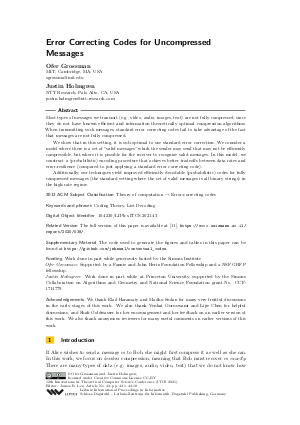LIPIcs.ITCS.2021.43.pdf
- Filesize: 0.59 MB
- 18 pages

 Creative Commons Attribution 3.0 Unported license
Creative Commons Attribution 3.0 Unported license


























Feedback for Dagstuhl Publishing